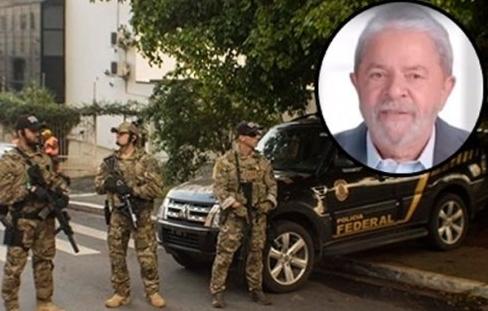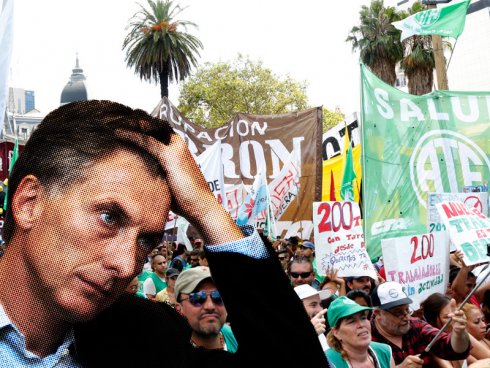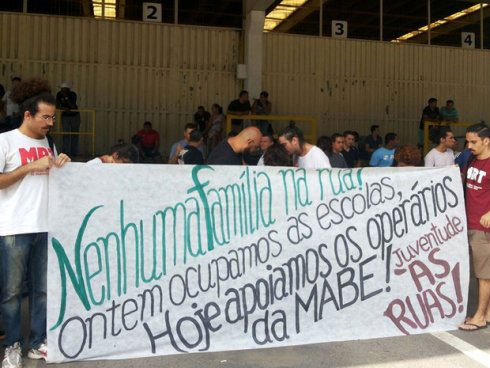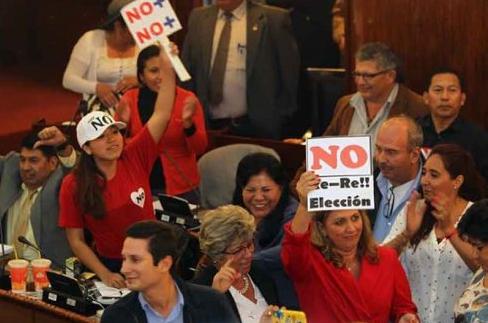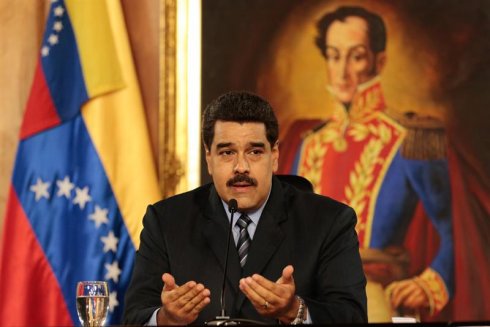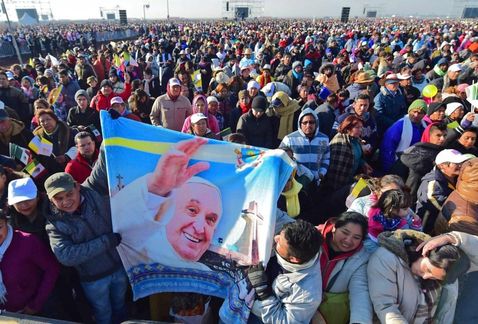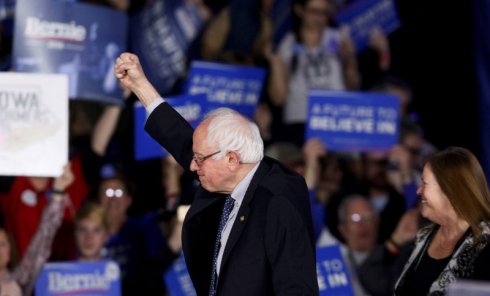Venezuela: New right-wing marches and harsh confrontations
13/03/2014
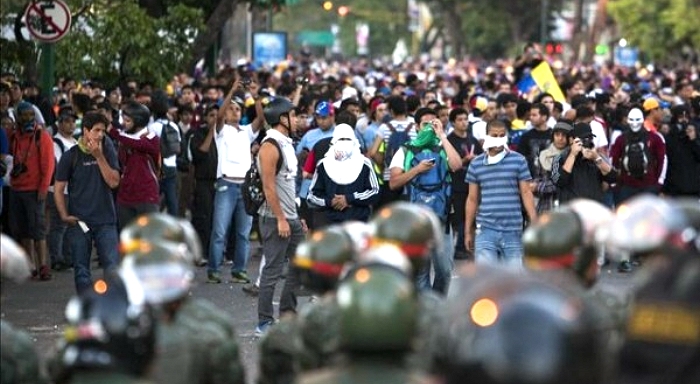
Venezuela: New right-wing marches and harsh confrontations
March 13, 2014
The political situation has again had its rough days this March 12, with a toll of three dead after the street disturbances in different cities of the country, but principally in Caracas, after the political situation made a political leap a month ago, and a "harder" group of the right-wing opposition decided to go on the offensive with mobilizations for "removal" of Maduro’s government. During the entire month of February and so far in March, the tense situation has not ceased, and none of the policies of Maduro’s government has managed to defuse the situation. A kind of political impasse exists, in which strong political tension with the economic crisis as a background, cannot be sorted out.
Today’s actions took even the government itself by surprise, with mobilizations in different parts of the country, but principally in Caracas, not so much because of their massive size, but because of the street actions that had their big impact by closing off main roads in the city and shutting down subway service, that led to a big intervention of the National Guard, producing fierce confrontations at different points and at the entrance of the Central University of Venezuela (UCV), the main one of the country. For its part, the government called a counter-march, as a mechanism to counteract the mobilizations of the right wing, but they failed to use force so that the actions of the right wing would be reduced, mainly because the principal street actions during the entire month have been kept in middle-class areas, regions historically anti-chavista; this time they advanced towards areas of the UCV, because the way to the city center was closed and because of the gatherings called by the chavistas.
Maduro’s government was hoping to have advanced in depressurizing the situation after, in the midst of the political aftershocks of February, it directed a dialogue with the "moderate" right wing, with the installation of the "National Conference for Peace," since, although it did not have the formal participation of the MUD, nor of Capriles, it did indeed have the presence of all the leaders of the country’s main Chambers of Commerce, like Jorge Roig of Fedecámaras, and highly placed bourgeois, like Lorenzo Mendoza, from the powerful Polar group, with the "Economic Truth Committee" emerging with these groups, a kind of bipartite chamber to "seek" a solution to the economic crisis. Although this move allowed him to gain time, facing the attempt that groups of the continental right wing were seeking with Panama at the head of the OAS, and making such an attempt fail, by seeking to show that the country’s big corporate groups were disposed to dialogue, not so the political wing of the MUD, and, in that way, seeking to isolate it internationally, and, with this card, to convene, on its own initiative, the meeting of UNASUR, which has already approved a resolution, favorable to the government to some extent, that resolved to send a delegation of chancellors to "help Venezuela in the dialogue." We will see in the days that follow, if, with the presence of this delegation and, because of the pressure from the governments of the region, it will head for a solution negotiated with the Venezuelan right wing.
What has indeed been clear is that Maduro’s government, using the severe political polarization, has managed to advance in key agreements with big corporate groups, like that of Lorenzo Mendoza, to put into practice a series of economic measures of greater freeing of the economy to benefit the capitalists of the country, where Jorge Roig of Fedecámaras in a "constructive" dialogue stated, "You need a healthy opposition, you need some businessmen that will correct the economic situations where they are not getting it right, and for that, we are the businessmen…. Count on the business world to build this country with all the help that we have." A real agreement or deal has been orchestrated with the majority of the corporate sector where the national government is already turning up in a process of "honoring" its commitments to the businessmen, first with its process of devaluations of the currency, first with the Sicad I system, that took the currency from 6.30 bolívares per dollar to an average of 11.30, but fluctuating in a system of auctions that will only tend to push the currency higher, just like Sicad II, where it is believed that foreign currency will be able to fluctuate between 25 and 40 bolívares per dollar and where there will not be a limit for the monetary transaction. At the same time that Maduro is announcing a review of prices in all the categories through "a group of agreements with national and international enterprises to set prices."
The right-wing offensive continues making use of the worsening of the economic crisis
As we have been writing, the political moment of the offensive of the more "radical" group of the right wing was not accidental; it took advantage of the jump of the economic crisis with its high levels of inflation, the deterioration of the shortages of essential, basic products, the impact of the currency devaluation on prices and wages, the limitation of access to dollars of groups of the middle classes among others, encouraging big native social groups, essentially from the middle classes, to mobilizations advocating solutions from the right to the prevailing situation. After the failure of the political tactics of the now so-called "moderate" group of the right headed by Capriles Radonski, delivering an election defeat to him, giving the character of a plebiscite to last December’s municipal elections, it generated a crisis and a strong division in the entire MUD opposition. The "hard" group headed by Leopoldo López, María Corina Machado and Antonio Ledezma then decided to go on the offensive by mobilizing a student movement that had become right-wing, that had a quick echo among broad groups of the well-to-do middle classes, putting pressure on the entire national situation, and even seeking greater interference by imperialism and the continental right wing.
Maduro’s government has survived on a precarious balance, highly vulnerable, that only closing ranks of the main forces of chavismo had been managing to weather it, not only because of the economic crisis that was piling up with its tensions, but, as we have already written, also because of the weakness originating in the presidential elections. Seeking to act on the surface of the crisis of the economy, by seeking to have an impact, so that the prices would not reach more exorbitant levels, with its end of the year offensive, creating even a "Superior Authority of Defense of the Economy," that now has already passed into oblivion, did not achieve more than avoiding a setback in the municipal elections, but not in order to give a means of an economic reordering, since this one was speeding up, even entering a dynamic of contraction of the economy, a product of the relative shortage of foreign currency, among other factors. January was the month of "adjustments" for a government that saw a limit put on its basis of maneuver in order to continue guaranteeing, on the one hand, the profitability of some sectors of capital – they did not achieve the "incentives" of elimination of taxes on the groups of importers, by eliminating for them the ISLR [tax on profits] and the VAT, among others, and, on the other hand, wanting to show up with a cash flow for concessions to popular groups, a product of the economic crisis.
The right-wing opposition gathers strength, despite the uncertainty still of the dynamics of the internal division
The big division that has been created in the very ranks of the bosses’ opposition still does not have an obvious dynamic, but it is rather under way. Although, at the moment, there are two clearly differentiated wings, one that still continues to be the majority group now, with a position more of a "long-term strategy," that is betting on the government’s exhaustion, faced with the crisis – in short, it knows that it is Maduro who has been paying and will pay the political cost of the anti-popular economic measures – to undermine it through a type of turn towards "connecting with the complaints of different groups of the people in the street," that, up to now, says it has been betting on a defeat of the government, but in the area of elections, and says it publicly rejects the "fast-track" and the "shortcuts that lead nowhere," and a "hard wing," that says that it is necessary to stay in the streets "until Maduro leaves," is the group that proclaims "The Solution." It is very likely that the Capriles group, now called "moderate," what it will seek will be to tame big splinter groups from chavismo in the government, with their own interests and a great deal to lose in a sudden change, and in that way, to bet on a "post-chavista" transition, openly agreed upon, for continuity with changes, or change with continuity, relying also on corporate groups, like Lorenzo Mendoza and even Jorge Roig himself, that participate in the government’s dialogue committees, depending on the correlation of forces, and the harder wing of the rightist opposition would move against this. What is indeed clear at the moment, is that the right wing has been growing in the ability to intervene, faced with a government that appears quite weak.
The internal tensions in chavismo are beginning to appear
Inside chavismo, everything is open also. It is clear that chavismo appears unified, facing the situation, or it was looking like that. Since Chávez’ death, almost a year ago, they had managed to "close ranks" to confront the new situation, full of uncertainties, like, for instance, the early presidential elections, and the instability of the following days, after the surprise outcome of the election, so close. However, facing the deterioration of the economic crisis, some public differences have already begun to appear, about the ways or the rates for applying the measures of adjustment – something unthinkable under Chávez – with one group more inclined to give in quickly to the demands to dismantle control of the exchange rate, and another that wanted to go more slowly. But it was this situation that came to show some differences more clearly, like the recent case of the Governor of Táchira, who clearly distanced himself from the repressive measures carried out by the central government in his jurisdiction and proposed the release of Leopoldo López and Iván Simonovis, going so far as to point out, in passing, that he "is not part of the regime," in the sense that he was "elected by popular vote," statements he would later retract. What is undeniable is that there exists tension among the different factions that make up the high commands of chavismo.
The post-chavismo transition continues to be traumatic and not at all peaceful
From now on, we will see more of the dynamic that the national situation will take, but, as we have been explaining, considering all aspects, what is most certain is that it will not be "peaceful" at all and, certainly, more "traumatic." If the right wing sits down to the dialogue with the presence of the chancellors of UNASUR, that remains to be seen, but what is certain is that with the force shown in the streets, this right wing will demand more as an ever larger mechanism of blackmail. If the government manages to deepen the agreement with the corporate groups, by directing the plan that Lorenzo Mendoza is proposing to it as a solution to the economic crisis, and, by that way, the right wing manages to impose its imprint, by "taming" the government, this is also open, but what is certain is that more anti-worker and anti-popular measures will come, where those who will pay for the crisis will be the workers. In this context, with a shift of the government and of the entire national situation more to the right, facing the deterioration of the economic conditions and not using other solutions than the classical capitalist ones, like those that it is already beginning to apply by dribs and drabs, but more in an attack, it will be the working people that will bear any agreement in the heights.
